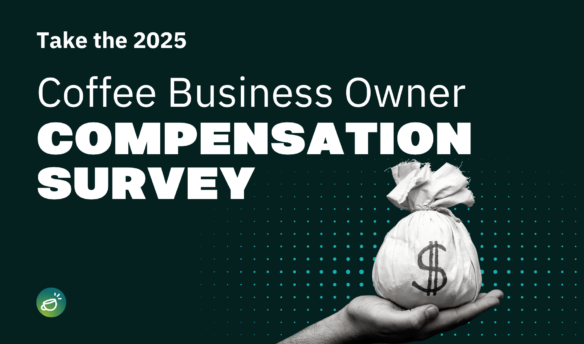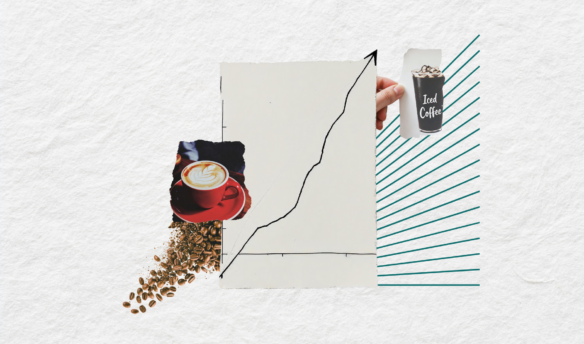Is roasting the key to a profitable coffee business? Are new coffee business owners doomed to a life without regular wages for the first five years of their journey? Does it take opening three or more locations to make running a coffee shop financially worthwhile?
Earlier this year, we invited coffee shop and roasting company owners to participate in the first-ever business owner compensation survey. 155 business owners participated, helping us answer questions about what enables owners to take high salaries.
This is part two of a three-part series on our survey findings:
- Survey Results: The 2023 Coffee Business Owner Salary Report
- Survey Results: What Do The Highest-Paid Coffee Business Owners Have In Common? (you are here)
- Survey Results: Six Recurring Themes That Shine A Light On Coffee Business Owner Challenges
Let’s take a deeper look at how a business’s age, location, and other attributes impact its owner’s salary to understand what really moves the needle when it comes to increasing owner compensation—and what the highest-paid owners have in common.
How Do Business Age, Hours Worked, and Location Impact Compensation?
Do older, more established businesses create more income?
Our analysis revealed a weak correlation between the business’s age and its owner’s income (when we exclude the outlier with 88 years in business and $375K in compensation). Our data analyst states that business age explains only ~13% of an owner’s compensation.
There is a small caveat, which we mentioned earlier: the correlation was only meaningful for coffee roasters under three years old, where the owner had another full-time job apart from the roasting business.
This weak correlation indicates that we generally cannot assume that being in business longer will result in higher compensation. In fact, the data showed there were coffee businesses that have been around for 20 or more years where the owner makes under $100K, as well as businesses ten years or older where the owners take little or no income. Other factors likely play a more significant role in determining compensation levels.
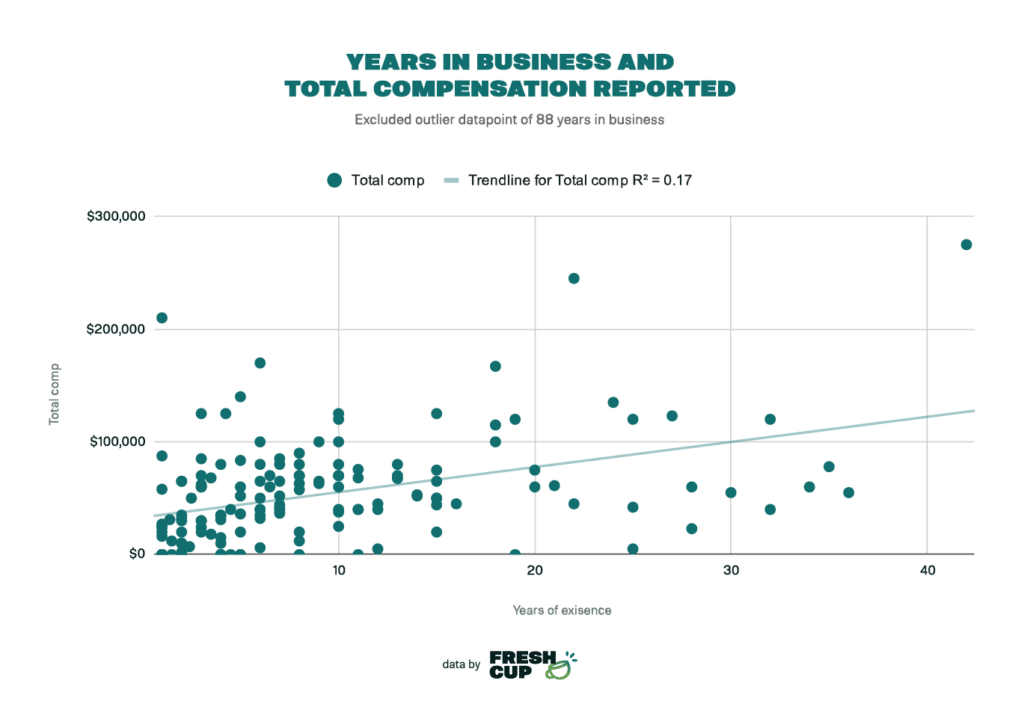
We hypothesized that business age would be an indicator of income if we zoomed into younger businesses, so we ran the same analysis on businesses under ten years old. But the results were largely the same: the difference between businesses that are two years old and ten years old is negligible. Businesses of all ages can yield both zero income and high income ($100K+) for owners.
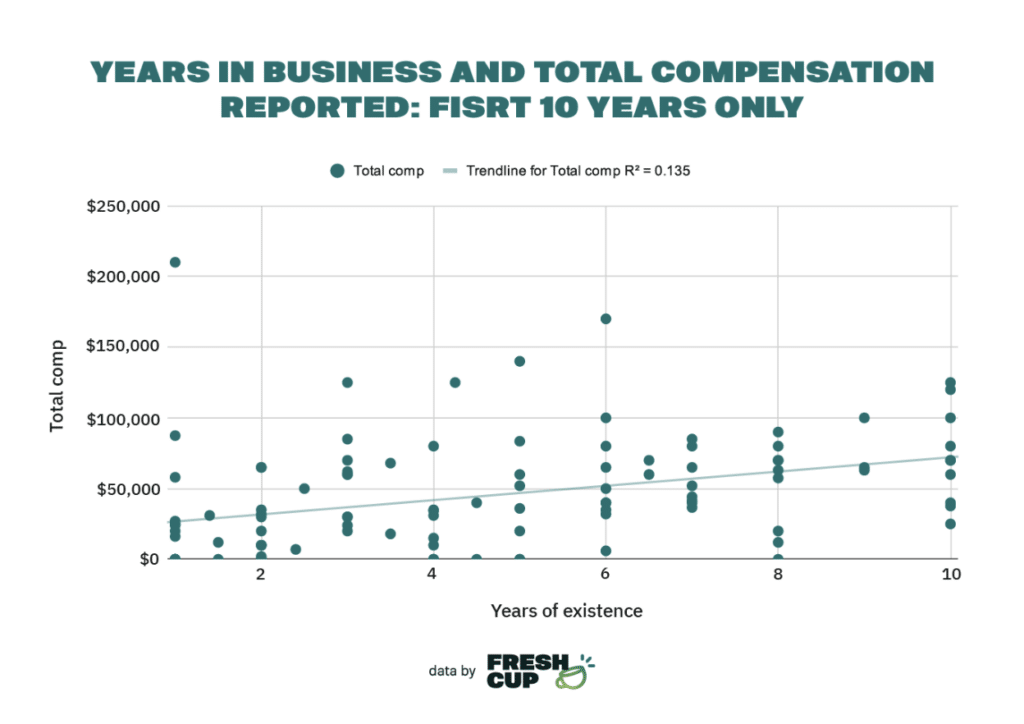
Do business owners who work more hours earn more income?
We saw no correlation between hours worked and total compensation. Owners who reported zero compensation cover a huge range of hours worked, with several respondents reporting zero income despite working 60+ hours per week. Many owners also reported working less than 20 hours weekly while earning $60K+ in annual income. Our data analyst partner states that hours worked explain less than 1% of an owner’s compensation.
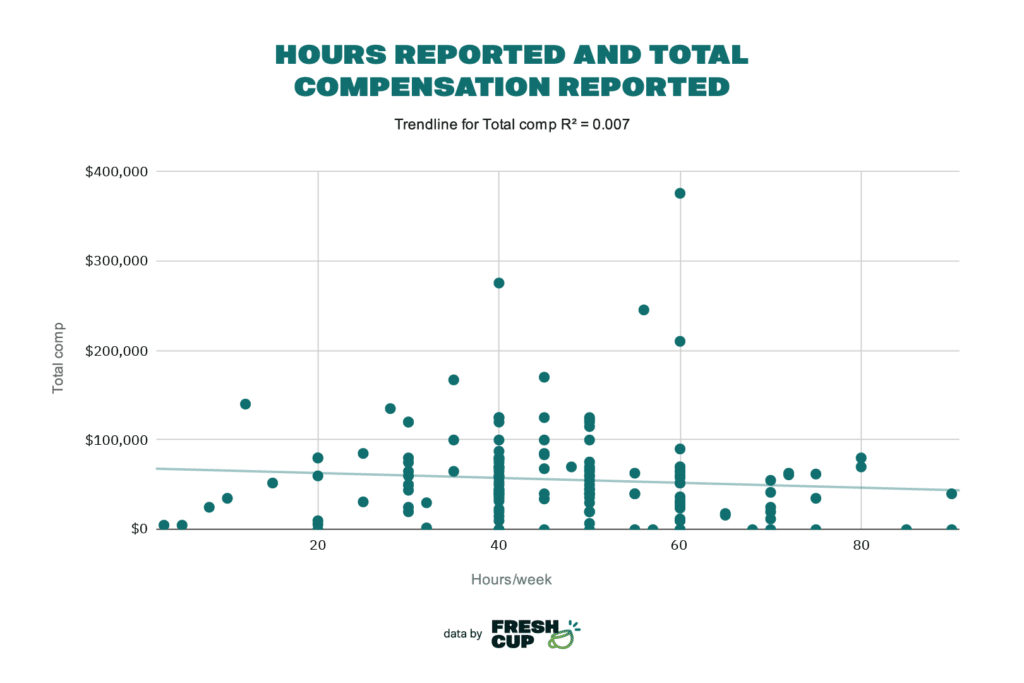
Do business owners in larger population centers earn more income?
Compensation according to metro size revealed a modest increase as metro size increases. The difference between town averages ($46K) and large metro averages ($69K) is a meaningful one, but higher costs of living eat a portion of the gains from those in large metros.
The drop in compensation in large cities (averaging $32K) can likely be explained by this category having the smallest number of respondents (14), meaning the data is less reliable. Our data analyst partner noted that, with more responses, this number likely would have leveled out to be in line with the other metro sizes.
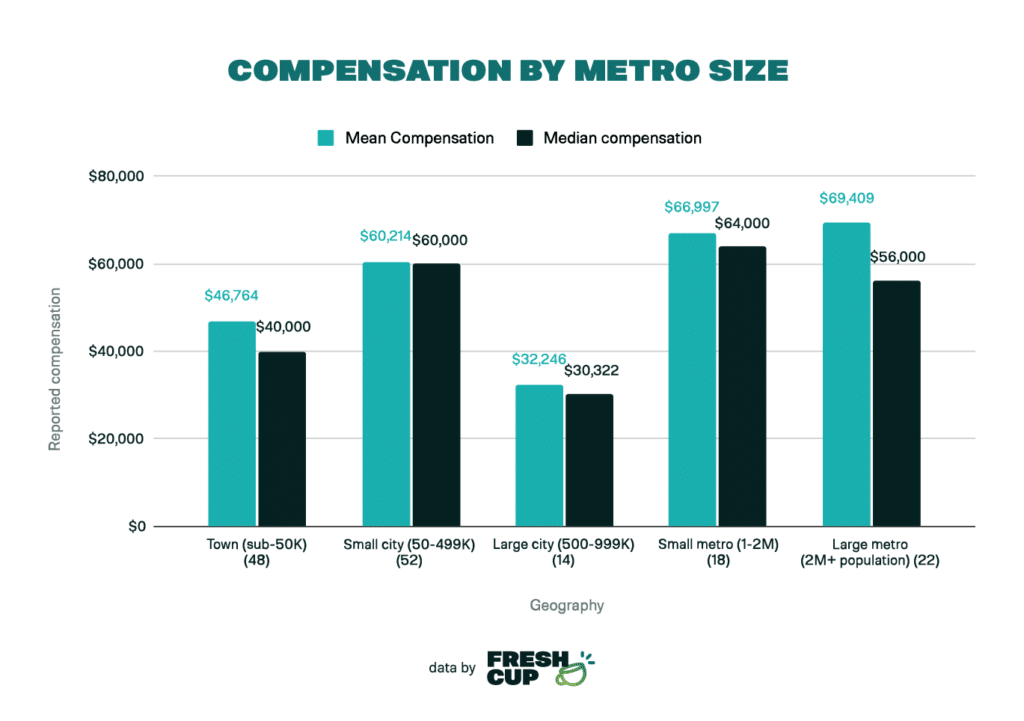
What Do the Highest-Paid Coffee Business Owners Have in Common?
We wanted to know what the highest-paid owners have in common that lower earners don’t, so we singled out the twenty coffee business owners who earned $100K or more in 2022.
To our surprise, we ran into more things that are not unique to high earners, so it’s worth nothing those first:
- High earners work 42 hours per week on average, which is roughly in line with the average hours put in for all respondents at 46
- High earners did not own a higher percentage of coffee roasting businesses compared to all respondents, at 65% and 62%, respectively (though one respondent reported that “roasting our own coffee has been the biggest single factor in our success”)
- High earners owned roughly the same percentage of their business as all respondents, at 75% and 79%, respectively
- High earners are distributed across all metro sizes, with one respondent reporting that they take home $167K in a town of under 10,000 people
Now let’s see what the high earners are doing differently:
- High earners with retail locations have 2.8 locations on average, compared to 1.5 locations for all respondents
- High earners owned older businesses, averaging 16 years old, compared to all recipients, which averaged 10 years old
- High earners noticeably reported that their work days are filled with fewer barista and roasting shifts and more with business growth and development, sales, team management and hiring, and special projects compared to all respondents (though one jokingly reported that they are “a glorified errand boy”)
High earners own slightly older businesses, have more locations, and have management teams that allow owners to focus more on strategy, growth, and sales.
Thank you to everyone who participated. You have helped establish the first benchmark for personal compensation among coffee shop and roasting company owners. Your insights will be invaluable for entrepreneurs evaluating a potential future in the world of coffee.












